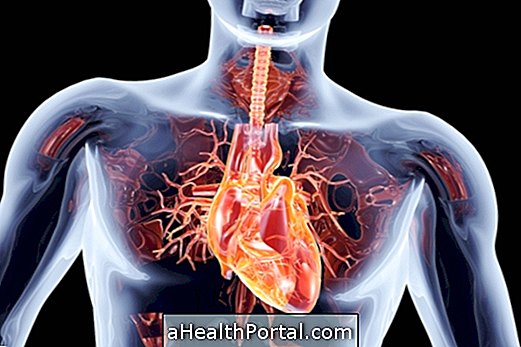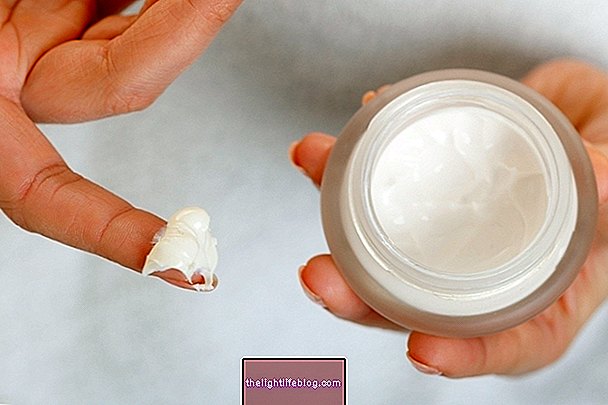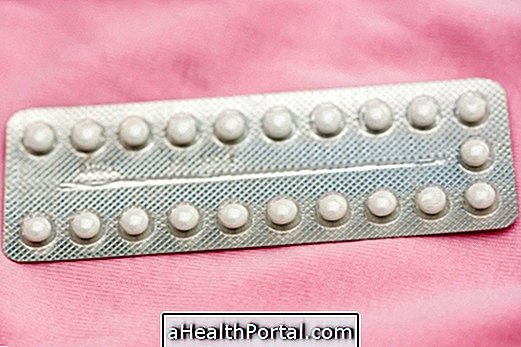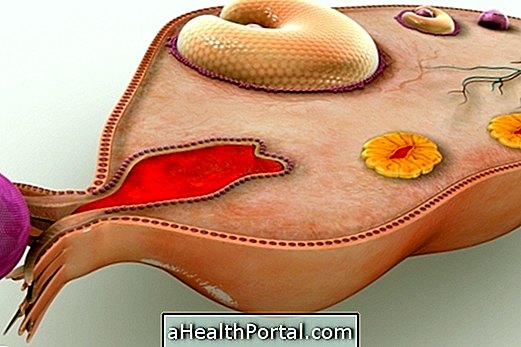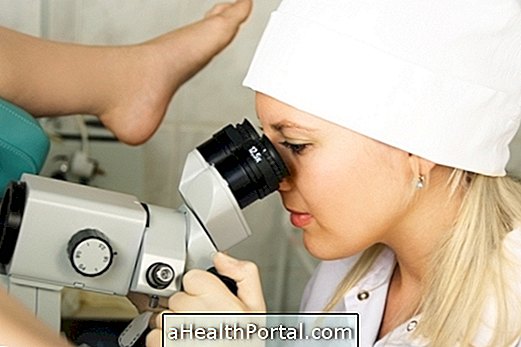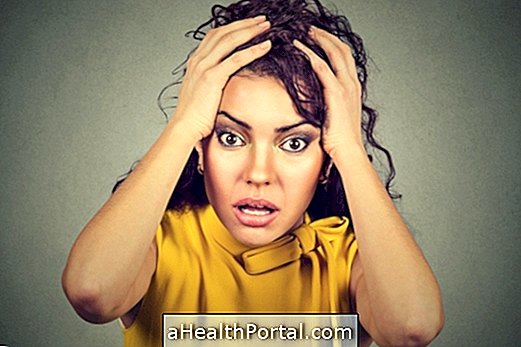Hemorrhoids are dilated and protruding veins in the anal region that can be internal or external, which can cause symptoms such as itching and anal pain, difficulty to defecate, and blood in the stool.
The treatment consists of the application of ointments with vasoconstricting, analgesic and anti-inflammatory properties, remedies to relieve pain, or even surgery.
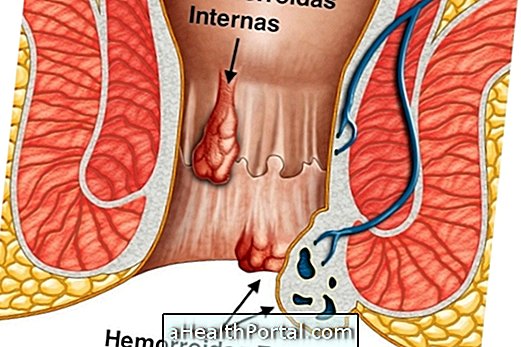
What are the symptoms
The main symptoms of hemorrhoids usually include:
- Live red blood around the stool or on the toilet paper after cleaning;
- Itchy anus;
- Difficulty defecating;
- Exit of a whitish fluid through the anus, especially in the case of internal hemorrhoids;
- Anal pain that may occur when evacuating, walking or sitting, especially in the case of external hemorrhoids;
When the hemorrhoid is external, there is also an overhang in the anus or an anal fissure. Learn how to treat anal fissures.
Possible causes
There is no exact cause for the appearance of hemorrhoids, however, poor diet, poor body posture or constipation can contribute to its formation.
In addition, other causes may be at the origin of the appearance of hemorrhoids, such as obesity, genetic predisposition or pregnancy, for example.
To know more about each type of hemorrhoid, see Internal Hemorrhoids or External Hemorrhoids.
How is the treatment done?
Hemorrhoids are cured and the remedies that may be indicated to treat them are ointments such as Hemovirtus, Proctosan or Proctyl, with vasoconstricting, analgesic and anti-inflammatory properties, which should be used under the guidance of the physician or pharmacist. See more ointments for hemorrhoids.
In addition, medications such as paracetamol or ibuprofen, which should be used under medical supervision to relieve swelling and pain caused by hemorrhoids, or even remedies such as Diosmin and Velunid that improve blood circulation and protect the veins, may also be used.
However, when the hemorrhoid does not go away with any of these treatments or comes back, it may be necessary to resort to surgery.
Home treatment
If it is not severe, hemorrhoids can be treated with only a few precautions such as drinking water, eating a high-fiber diet or avoiding exertion, such as lifting weights, for example, that make hemorrhoids usually return to normal within a few days .
In addition, some habits can help prevent their reappearance, such as:
- Do not push hard to evacuate;
- Do not pick up weight, do not strain or work out;
- Avoid using toilet paper, washing the area with soap and water or using moist tissues when not at home;
- To make baths of seat. Here's how to make a Hemorrhoid Seat Bath.
Watch this video and learn how to do a home treatment for hemorrhoids through diet:

Is Hemorrhoids Common in Pregnancy?
Hemorrhoids in pregnancy are frequent due to the weight gain of the pregnant woman and the pressure exerted on the pelvic region, as well as the increase of blood circulation in the body. Generally, the symptoms are the same but the treatment should be done very carefully and always under medical supervision.
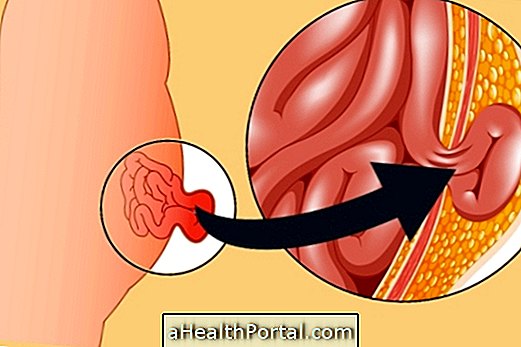

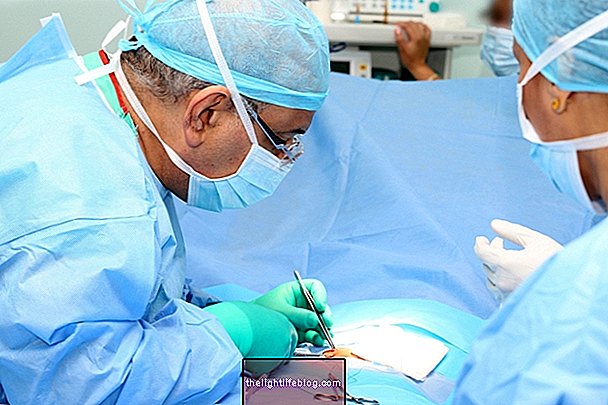
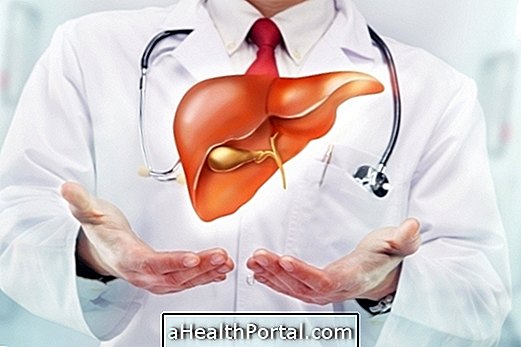



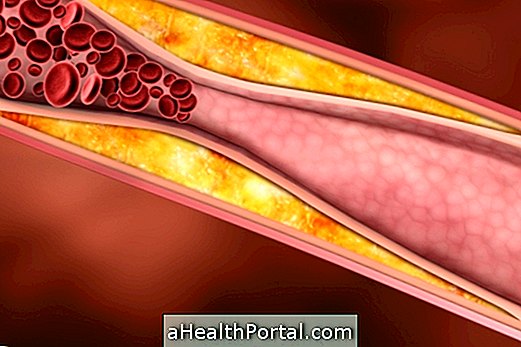
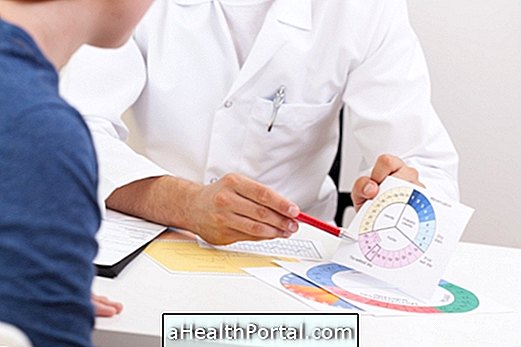
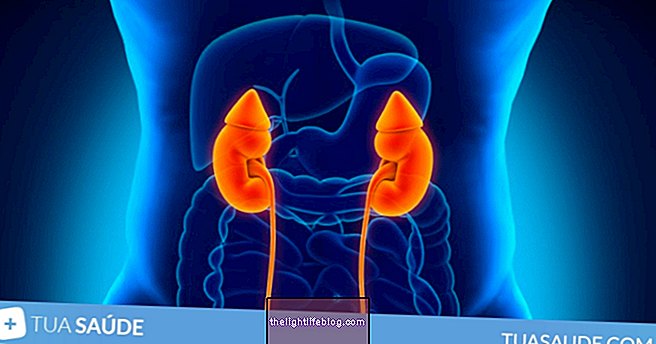
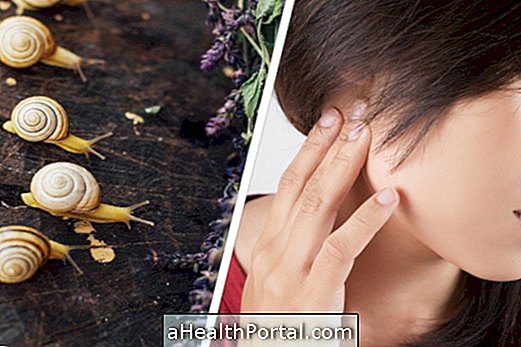

.png)

